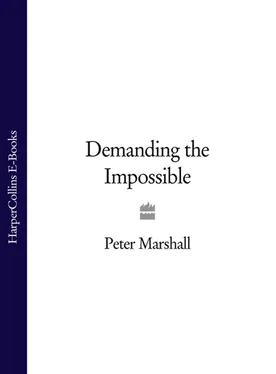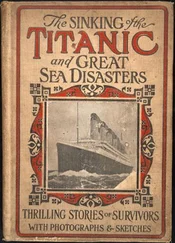PART ONE Anarchism in Theory
To be governed is to be watched over, inspected, spied on, directed, legislated, regimented, closed in, indoctrinated, preached at, controlled, assessed, evaluated, censored, commanded; all by creatures that have neither the right, nor wisdom, nor virtue … To be governed means that at every move, operation, or transaction one is noted, registered, entered in a census, taxed, stamped, priced, assessed, patented, licensed, authorized, recommended, admonished, prevented, reformed, set right, corrected. Government means to be subjected to tribute, trained, ransomed, exploited, monopolized, extorted, pressured, mystified, robbed; all in the name of public utility and the general good. Then, at the first sign of resistance or word of complaint, one is repressed, fined, despised, vexed, pursued, hustled, beaten up, garroted, imprisoned, shot, machine-gunned, judged, sentenced, deported, sacrificed, sold, betrayed, and to cap it all, ridiculed, mocked, outraged, and dishonoured. That is government, that
is its justice and its morality!
PIERRE-JOSEPH PROUDHOX
Man is truly tree only among equally free men.
MICHAEL BAKUNIN
Every State is a despotism, be the despot one or many.
MAX STIRNER
ANARCHY IS USUALLY DEFINED as a society without government, and anarchism as the social philosophy which aims at its realization. The word ‘anarchy’ comes from the ancient Greek word αναϱχια in which αν meant ‘without’ and αϱχια meant first a military ‘leader’ then ‘ruler’. In medieval Latin, the word became anarchia . During the early Middle Ages this was used to describe God as being ‘without a beginning’; only later did it recapture its earlier Greek political definition. Today it has come to describe the condition of a people living without any constituted authority or government. From the beginning, anarchy has denoted both the negative sense of unruliness which leads to disorder and chaos, and the positive sense of a free society in which rule is no longer necessary.
It would be misleading to offer a neat definition of anarchism, since by its very nature it is anti-dogmatic. It does not offer a fixed body of doctrine based on one particular world-view. It is a complex and subtle philosophy, embracing many different currents of thought and strategy. Indeed, anarchism is like a river with many currents and eddies, constantly changing and being refreshed by new surges but always moving towards the wide ocean of freedom.
While there are many different currents in anarchism, anarchists do share certain basic assumptions and central themes. If you dive into an anarchist philosophy, you generally find a particular view of human nature, a critique of the existing order, a vision of a free society, and a way to achieve it. All anarchists reject the legitimacy of external government and of the State, and condemn imposed political authority, hierarchy and domination. They seek to establish the condition of anarchy, that is to say, a decentralized and self-regulating society consisting of a federation of voluntary associations of free and equal individuals. The ultimate goal of anarchism is to create a free society which allows all human beings to realize their full potential.
Anarchism was born of a moral protest against oppression and injustice. The very first human societies saw a constant struggle between those who wanted to rule and those who refused to be ruled or to rule in turn. The first anarchist was the first person who felt the oppression of another and rebelled against it. He or she not only asserted the right to think independently but challenged authority, whatsoever form it took.
As a recognizable trend in human history, the thread of anarchism, in thought and deed, may be traced back several thousands of years. Kropotkin once observed that ‘throughout the history of our civilization, two traditions, two opposing tendencies have confronted each other: the Roman and the Popular; the imperial and the federalist; the authoritarian and the libertarian.’ 1 Anarchism is part of the latter tradition. It is a tradition opposed to domination, a tradition which sees the self-governing community as the norm and the drive to create authoritarian and hierarchical institutions as an aberration.
Anarchism began to take shape wherever people demanded to govern themselves in the face of power-seeking minorities – whether magicians, priests, conquerors, soldiers, chiefs or rulers. Throughout recorded history, the anarchist spirit can be seen emerging in the clan, tribe, village community, independent city, guild and union.
The anarchist sensibility made its first appearance amongst the Taoists of ancient China, and has been with us ever since. It is clearly present in classical Greek thought. During the Christian era, its message found direct political expression in the great peasants’ revolts of the Middle Ages. The factions of the extreme Left which flourished during the English Revolution, especially the Diggers and the Ranters, were deeply imbued with its spirit. Equally, it was to infuse the lively town meetings in the New England of the seventeenth century.
Nevertheless, these manifestations are, strictly speaking, part of the prehistory of anarchism. It required the collapse of feudalism in order for anarchism to develop as a coherent ideology, an ideology which combined the Renaissance’s growing sense of individualism with the Enlightenment’s belief in social progress. It emerged at the end of the eighteenth century in its modern form as a response partly to the rise of centralized States and nationalism, and partly to industrialization and capitalism. Anarchism thus took up the dual challenge of overthrowing both Capital and the State. But it soon had to struggle on two fronts, against the existing order of State and Church as well as against authoritarian tendencies within the emerging socialist movement.
It was of course the French Revolution which set the parameters for many of the arguments and struggles which preoccupied the Left during the nineteenth century. Anarchist sentiments and organization can be seen in the districts and municipalities during the Revolution. But the term ‘anarchist’ was still used as a term of abuse by the Jacobins and the Girondins when attacking the extreme sans culottes and the enragés who advocated federalism and the abolition of government. The real father of anarchism is to be found on the other side of the Channel. It was William Godwin who gave the first clear statement of anarchist principles, looking forward eagerly to the dissolution of that ‘brute engine’ of political government. 2
The nineteenth century witnessed a great flood of anarchist theory and the development of an anarchist movement. The German philosopher Max Stirner elaborated an uncompromising form of individualism, firmly rejecting both government and the State. The first person deliberately to call himself an anarchist was the Frenchman Pierre-Joseph Proudhon; he insisted that only a society without artificial government could restore natural order: ‘Just as man seeks justice in equality, society seeks order in anarchy.’ 3 He launched the great slogans ‘Anarchy is Order’ and ‘Property is Theft’.
The Russian revolutionary Michael Bakunin described anarchism as ‘Proudhonism broadly developed and pushed to its extreme consequences’. 4 He popularized the term ‘anarchy’, exploiting the two associations of the word: with the widespread discord of revolutionary upheaval, and with the stable social order of freedom and solidarity which would follow. Providing a charismatic example of anarchy in action, Bakunin also helped forge the identity of the modern anarchist movement.
Читать дальше












